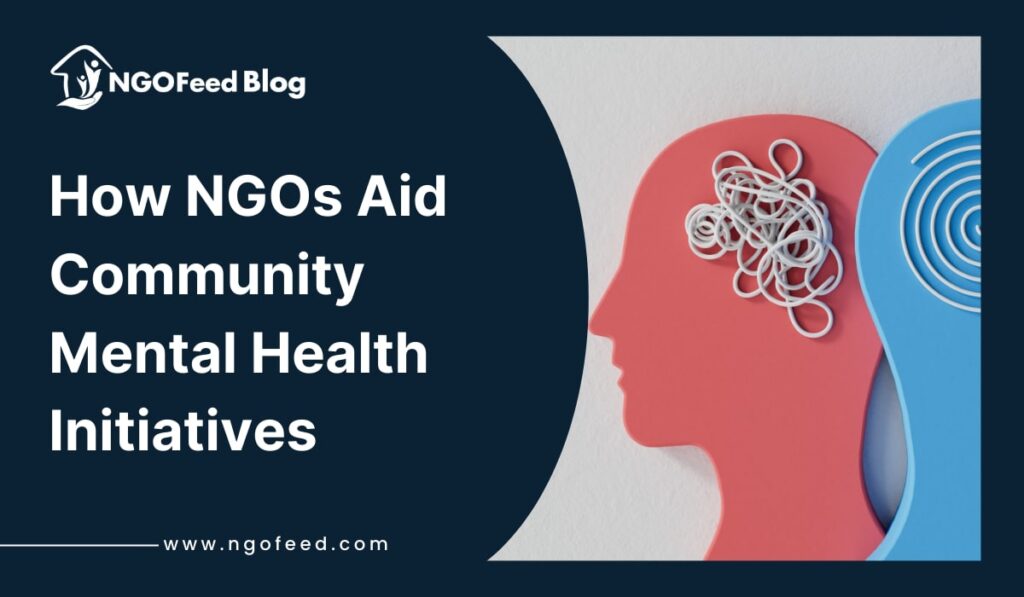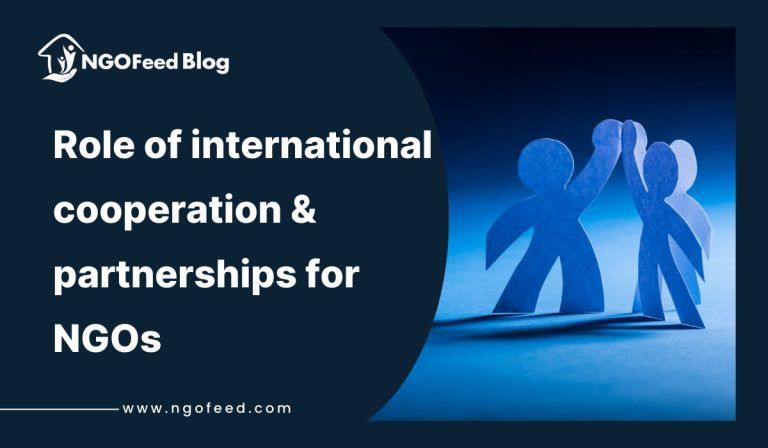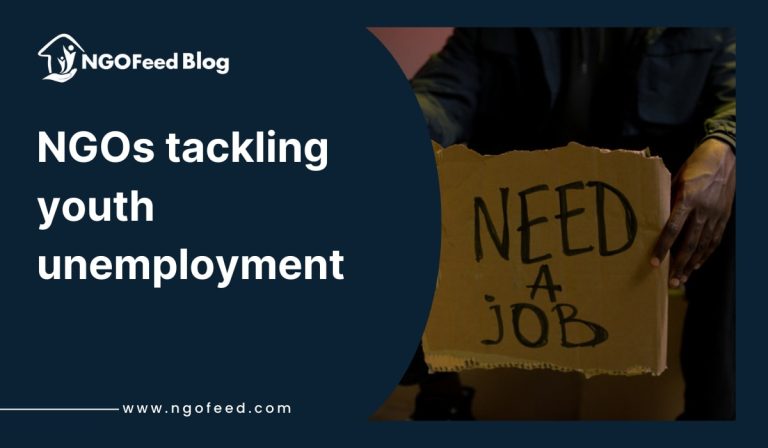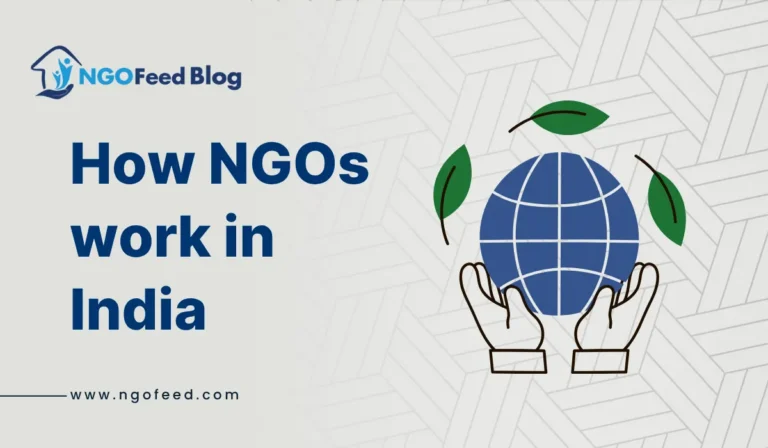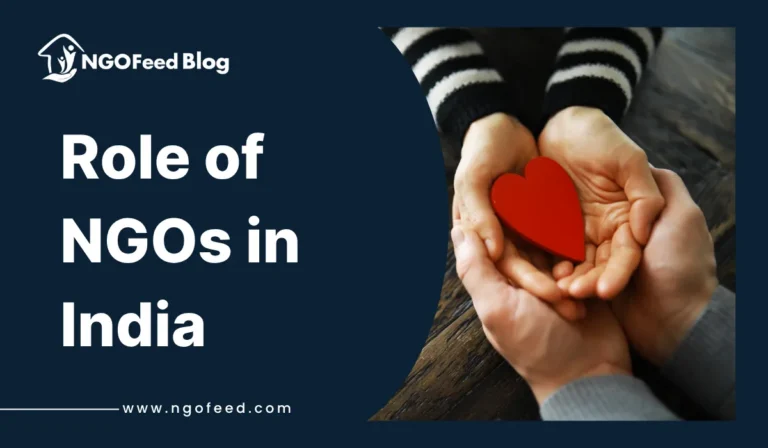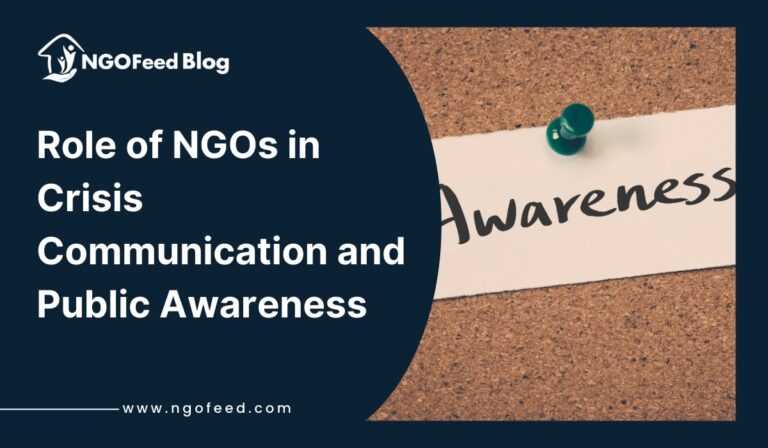How NGOs Aid Community Mental Health Initiatives: Mental health has historically been one of the most neglected components of public health and an especially serious one in developing countries where stigma, lack of awareness and inadequate infrastructure contribute to challenges. For the past decade, non-governmental organizations or NGOs, have emerged as critical actors. NGOs are relevant not only in augmenting government efforts but in creating innovative community-led models for awareness, access and treatment to improve mental health.
Table of Contents
How NGOs Aid Community Mental Health Initiatives
NGOs are important in developing mentally healthy communities when providing counselling and crisis intervention, conducting awareness events and advocating for policy change. This article will highlight the importance of NGOs in community mental health initiatives, their approaches and challenges along with the impactful role that they continue to create.
1. Understanding Community Mental Health
- The Concept of Community Mental Health: Community mental health refers to mental health care services provided within the community setting rather than in hospitals or psychiatric institutions. It focuses on prevention, early intervention, treatment and rehabilitation. The approach emphasizes accessibility, inclusivity and social participation.
- The Importance of Community Mental Health: Mental health is not merely the absence of mental illness but a state of well-being in which individuals can cope with normal life stresses, work productively and contribute to their community. Promoting mental health at the community level:
- Reduces the burden of untreated disorders.
- Encourages early diagnosis and support.
- Strengthens social cohesion and resilience.
- Prevents suicide, substance abuse and domestic violence.
- The Global and Indian Context: According to the World Health Organization (WHO), one in every eight people globally lives with a mental disorder. In India, the National Mental Health Survey (2016) reported that nearly 14% of the population suffers from some form of mental illness. However, with less than one psychiatrist for every 100,000 people in many regions, NGOs have stepped in to bridge the massive gap between demand and available mental health services.
The Role of NGOs in Mental Health Promotion
- Awareness and Education: The first step toward mental health reform is awareness. Many NGOs organize campaigns, workshops and public seminars to educate people about mental health conditions, symptoms and treatment options.
- Examples include:
- The Live Love Laugh Foundation (founded by Deepika Padukone) focuses on destigmatizing depression and anxiety.
- Mindroot Foundation conducts mental health literacy programs for rural youth and women.
These initiatives help break the silence around mental illness and empower individuals to seek help without fear or shame. - Early Intervention and Counselling
NGOs often operate helplines, mobile clinics and community counselling centers offering free or affordable services. Trained counsellors and psychologists provide immediate emotional support and referrals.
For instance:
- Snehi runs a 24-hour helpline offering psychological support to those experiencing stress or suicidal thoughts.
- Sumaitri provides confidential support through volunteers trained in active listening techniques.
These efforts reach marginalized communities where professional mental health care is scarce or unaffordable.
- Rehabilitation and Skill Development
For individuals recovering from mental illness, reintegration into society is essential. NGOs design rehabilitation programs that include skill training, art therapy and employment support to help individuals regain confidence and independence.
The Banyan, based in Chennai, is a pioneering example that provides shelter, medical care and livelihood training for homeless women with mental illness, enabling them to lead productive lives.
- Policy Advocacy and Research
NGOs play a critical role in influencing mental health policies. They conduct grassroots research, collect field data and lobby governments to prioritize mental health in public policy.
Organizations like The Centre for Mental Health Law and Policy (CMHLP) in Pune advocate for mental health legislation and rights-based frameworks, ensuring that national laws align with international human rights standards.
- Integration of Mental Health with Other Development Goals
Many NGOs integrate mental health services with broader social initiatives such as education, gender equality and poverty reduction. For instance:
- Integrating mental health awareness into school programs helps children develop emotional resilience.
- Linking women’s self-help groups with mental health education empowers them to address domestic violence and trauma collectively.
Community-Based Approaches Used by NGOs
- Grassroots Engagement
Community involvement is central to successful mental health programs. NGOs recruit and train local volunteers as community health workers who can identify at-risk individuals, offer peer support and ensure continuity of care.
This participatory model not only fosters trust but also ensures sustainability.
- Use of Technology and Tele-Counselling
Digital innovations have revolutionized mental health outreach. NGOs increasingly use mobile applications, online therapy platforms and chat-based counselling to extend their reach, especially after the COVID-19 pandemic.
Projects like iCall, initiated by Tata Institute of Social Sciences (TISS), provide free, confidential counselling through phone and email, reaching people across India regardless of location.
- Collaboration with Government and Private Sector
Many NGOs form partnerships with government agencies, educational institutions, and corporates. Such collaborations ensure better funding, access to data, and long-term impact.
For example, the National Mental Health Programme (NMHP) collaborates with NGOs for community outreach, while corporate social responsibility (CSR) initiatives often fund NGO-led mental health projects.
- Culturally Sensitive Interventions
Since mental health perceptions vary by culture, NGOs tailor their programs to local beliefs and customs. Using traditional communication forms like street plays or folk songs helps in reaching rural audiences effectively.
By blending modern psychology with community values, NGOs make interventions relatable and acceptable.
Challenges Faced by NGOs in Mental Health Work
- Limited Funding and Resources: Mental health remains underfunded compared to physical health. Many NGOs struggle to sustain programs due to dependency on short-term grants and limited donations.
- Stigma and Misconceptions: Despite growing awareness, mental illness is still associated with social shame. Families often hide affected members or avoid seeking help, making community outreach difficult.
- Shortage of Trained Professionals: A severe shortage of psychologists, psychiatrists and trained counsellors limits the scale and quality of NGO interventions. Recruiting and retaining skilled mental health workers in rural areas is particularly challenging.
- Lack of Policy Implementation: While India’s Mental Healthcare Act (2017) is progressive, its implementation at the grassroots level remains weak. NGOs often find themselves compensating for systemic inefficiencies without adequate government support.
- Burnout Among Volunteers: Working with emotionally distressed populations can take a toll on NGO workers themselves. Without proper supervision or emotional support, staff may face compassion fatigue or burnout and affecting service quality.
Success Stories and Impact
- The Banyan (Chennai): The Banyan started as a small initiative in 1993 and now serves thousands of women experiencing homelessness and mental illness. Its innovative model combines medical treatment, vocational training and community reintegration. The organization’s success has inspired replication in several states.
- Sangath (Goa): Founded by psychiatrist Dr. Vikram Patel, Sangath focuses on integrating mental health into primary care. Its community-based interventions, such as “Healthy Activity Programme,” train lay counsellors to deliver therapy for depression, proving that mental health support can be made accessible and affordable.
- The Mindroot Foundation (Delhi): Mindroot focuses on youth mental health, organizing peer-support groups, workshops in schools and colleges and campaigns to combat social media-induced anxiety and stress. Their community-driven model ensures youth engagement and openness.
- The Live Love Laugh Foundation: With nationwide awareness campaigns and school programs, the foundation has reached millions across India. Its rural mental health initiative collaborates with local NGOs to train community workers in early detection of mental illnesses.
These success stories highlight the transformative potential of NGOs in shaping a compassionate and mentally resilient society.
The Way Forward
- Strengthening Partnerships: Stronger collaboration between NGOs, government bodies, healthcare institutions and the private sector is vital. This can improve funding, training and access to mental health services at the grassroots.
- Building Mental Health Infrastructure: NGOs can play a key role in establishing district-level mental health centers, helplines and rehabilitation facilities. Government support in the form of grants and subsidies would help sustain these initiatives.
- Emphasizing Preventive Care: Rather than focusing solely on treatment, NGOs should prioritize prevention through stress management workshops, emotional education in schools, and community wellness programs.
- Capacity Building: Regular training and supervision for NGO staff, counsellors and community volunteers are crucial to maintaining high-quality mental health care.
- Encouraging Research and Innovation: NGOs should invest in data-driven research to assess program outcomes, develop evidence-based interventions and influence mental health policy reforms.
Conclusion
Mental health issues in India is fundamental to community health and national development. Non-governmental organizations (NGOs), with their connections to grassroots communities and their humanitarian spirit have evolved into a necessary component of bridging the mental health space, especially in under-resourced areas. With a focus on awareness, advocacy and community-based care, NGOs not only heal the mind but create the opportunity for individuals to live with dignity and hope.
Nonetheless, sustainable buy-in from government entities, social acceptance and a community approach will be necessary to ensure that mental health care is truly available to everyone. The collaborative power of NGOs, combined with the public’s consciousness and policy/decision-maker commitment, can meaningfully shift mental health from being a marginalized issue to taking a place in the mainstream of social priorities.

